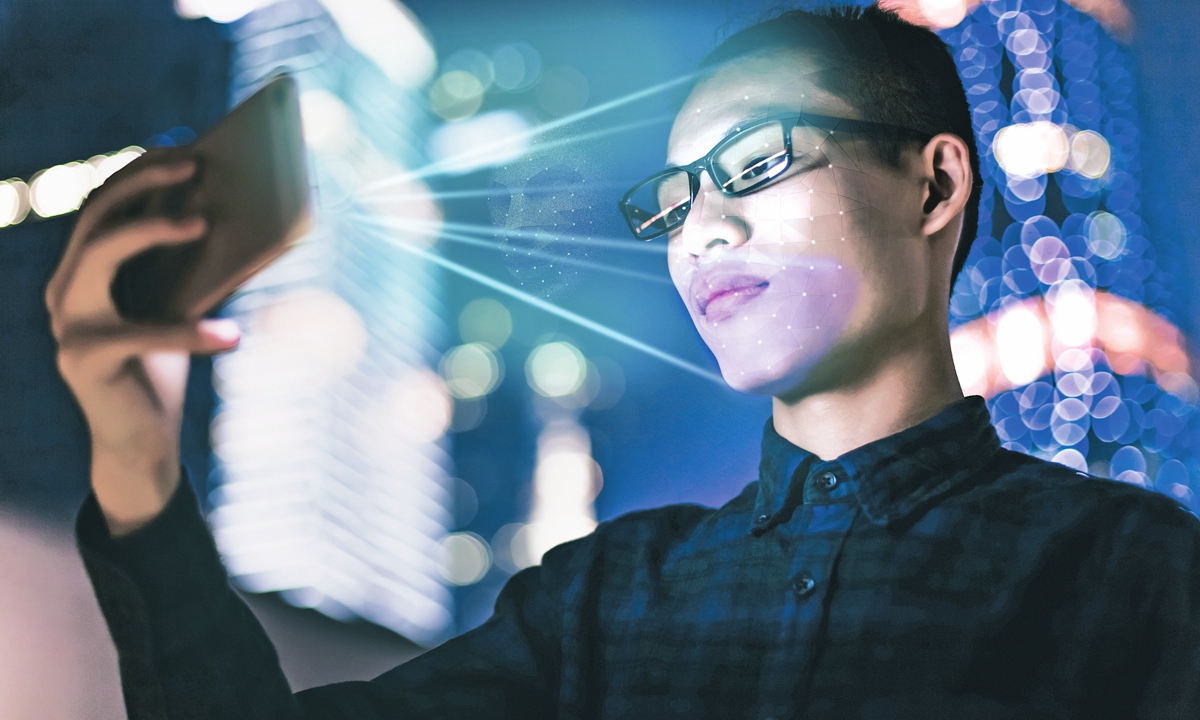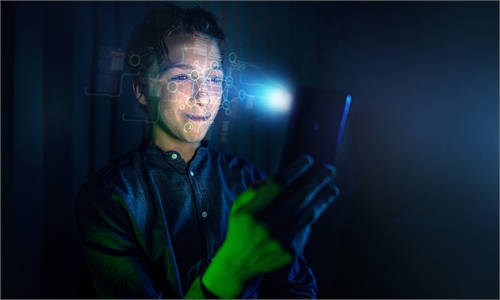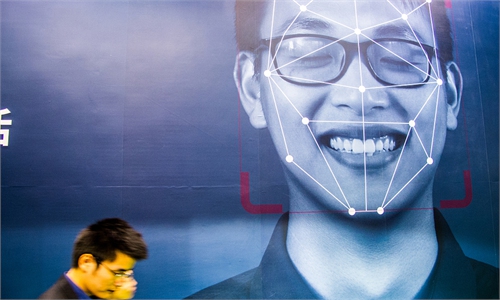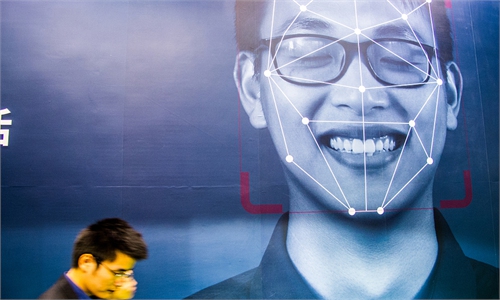Six CPPCC members jointly call for stronger facial recognition supervision in China

Illustration for facial recognition Illustration: VCG
Six delegates of China's top political advisory body jointly called for the strengthening of facial recognition supervision in China amid increasing abuse of personal information, including facial recognition, in the whole society.
Cai Xiaohong, a member of Chinese People's Political Consultative Conference (CPPCC), also a fellow researcher with the Institute of Modern Physics of Chinese Academy of Sciences, together with the remaining five CPPCC members, including Ye Youda, a researcher at the National Laboratory for Computational Fluid Dynamics, Zhou Yumei, vice director of the Institute of Microelectronics of the Chinese Academy of Sciences, etc., called for better protection and supervision of facial recognition in China during the two sessions of 2021.
"Since relevant supervision mechanisms and regulations are not fully established, many institutes that collect facial information do not have the corresponding risk prevention and control capabilities and safety guarantee mechanisms. Strengthening facial recognition supervision is a matter of urgency," Cai noted in an interview with Science and Technology Daily.
It is estimated that the size of China's facial recognition market has grown at an average annual rate of 50 percent in recent years, and it is expected to exceed 50 billion yuan ($7.68 billion) by 2021.
The six CPPCC members suggested that China should speed up the formulation of laws and regulations concerning personal information protection. "[We should] establish the basic rights of control, deletion, and forgetting of personal image data, and protect personal reputations and privacy," the proposal states.
China is trying to improve its legal system to better encompass citizens' privacy and information security, legal experts noted.
Shi Yuhang, who is a lawyer and a Certified Information Security Professional (CISP) holder, told the Global Times on Monday that clarifying various rights in personal information processing activities will allow individuals to control their personal information more clearly. "Once their information is abused by information processors, they can easily claim their right and ask processors to bear legal responsibility," Shi said.
In addition, suggestions have been made for the establishment of a facial recognition network and information security supervision system, increasing penalties for companies that illegally collect, disclose and abuse personal privacy, and promoting the innovation and healthy development of facial recognition technology.
Shi also noted that apart from laws, regulations, and more supervision on enterprises and institutions, the most important thing is to involve interested parties in the activity of facial information collection.
"For example, if a facial recognition system is set to be used in a shopping mall, customers, members, and merchants should be invited to discuss and decide together," Shi told the Global Times.
The Personal Information Protection Law of China (Draft), which ended the period for soliciting public opinion on November 19, 2020, intends to regulate personal information collected by equipment in public areas by outlining that information collected can only be processed for public security purposes.
"Once the law comes into effect, it is believed that relevant lawsuits and complaints would surely increase significantly," Shi said.
To make facial recognition develop healthier in the future, "institutes should respect the wishes on the subject of personal information and ensure that individuals have the opportunity to know how their facial information will be used," Shi said.
A National People's Congress (NPC) deputy, Tan Jianfeng, who is the chief expert of the Infectious Diseases Division of the No.8 People's Hospital in Guangzhou city, Guangdong Province, also called for stronger protection of personal information during the two sessions.




